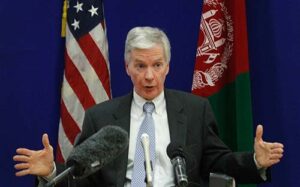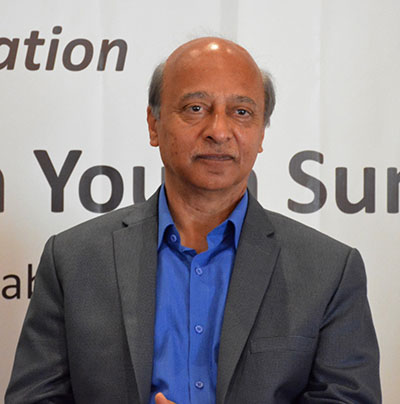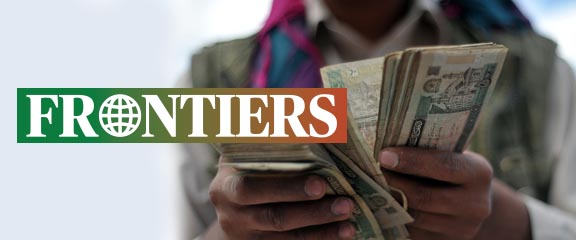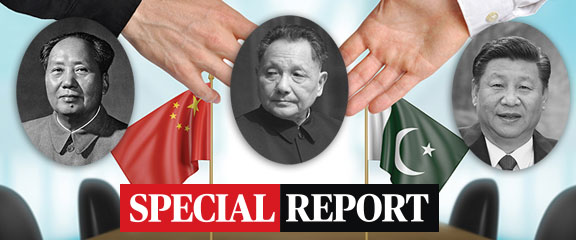There is an immeasurable amount of scrutiny and censure of US President Joe Biden for the Afghan debacle, but there is no attempt to look back at the grave wilful omissions, commissions and mistakes committed by the top brass in Washington itself. And the US contradictions in dealing with both Afghanistan and Pakistan. What went wrong and why?
During a Congressional hearing on Afghanistan on February 8, 2017, the late Senator John McCain, a regular visitor to both Afghanistan and Pakistan, had summed up the primary faultline in the US-Pakistan relations.
“… the fact remains that numerous terrorist groups still operate within Pakistan, attack its neighbours and kill US forces. …Put simply, our mission in Afghanistan is immeasurably more difficult, if not impossible, while our enemies possess a safe haven in Pakistan. These sanctuaries must be eliminated,” McCain had said during the hearing. Although it dealt with the situation in Afghanistan, the hearing repeated the word Pakistan at least 73 times and there were dozens of indirect references to the country’s role in the Afghan conflict.
Washington’s power houses and US media reflected this sentiment, which was further amplified by the Indian narrative on Pakistan, which fed on the issue of “havens in Pakistan.”
However, contrary to this anti-Pakistan narrative, Gen John Nicholson Jr, the then commander of the US and international forces in Afghanistan, advocated for working with Pakistan and its military to stabilise Afghanistan and defeat extremists.

He also disappointed most Congressmen by disagreeing with the idea of cutting off US aid to Pakistan. Every time he was asked about stopping US assistance, he emphasised the need for diplomatic engagement with Islamabad.
Several years on, Ryan Crocker, former US Ambassador to Pakistan, Iraq and Afghanistan, tends to agree with what General Nicholson had said then – broadly conceding that the negative focus on Pakistan was misplaced.
In a New York Times oped (August 21, 2021), Crocker encapsulates the manner in which most US officials, politicians and their allies such as UK, Germany and India kept cold-shouldering Pakistan.
Crocker attributes the latest Afghan situation to a “lack of strategic patience at critical moments, including from President Biden. It has damaged our alliances, emboldened our adversaries and increased the risk to our own security.”
The ambassador goes on to make another admission: “After the Soviet defeat in Afghanistan at the hands of the U.S.-trained and armed mujahideen in 1989, training that was facilitated by Pakistan, we decided we were done. On the way out, we stopped helping Pakistan in a key way: We ended security and economic assistance because of its nuclear weapons programme, something we’d exempted before. So Pakistan, in its own narrative, went from being the most allied of allies to the most sanctioned of adversaries. That is why Pakistan threw its support to the Taliban when they started gaining ground in the 1990s: It could end a dangerous conflict along Pakistan’s own unstable borders.”
Crocker, ambassador to Pakistan from 2004 to 2007, then sums up what Pakistani officials kept telling him: “I pushed Pakistani officials repeatedly on the need to deny the Taliban safe havens. The answer I got back over time went like this: ‘We know you. We know you don’t have patience for the long fight. We know the day will come when you just get tired and go home — it’s what you do. But we aren’t going anywhere — this is where we live. So if you think we are going to turn the Taliban into a mortal enemy, you are completely crazy.’ We have again validated their scepticism.”
At the time, nevertheless, nobody was inclined to internalise that cautious and calculated response by Pakistan. This also resonates in the report of John Sopko, the head of SIGAR (The office of the Special Inspector General for Afghanistan Reconstruction), “20 years of Lessons Learnt.”
The U.S. government did not understand the Afghan context and consequently failed to tailor its efforts accordingly. Ignorance of prevailing social, cultural and political contexts in Afghanistan has been a significant contributing factor to failures at the strategic, operational, and tactical levels. U.S. officials did not even have a basic understanding of the Afghan environment, much less how it was responding to U.S. interventions. Many mistakes were born from a wilful disregard for information that may have been available. In many cases, the U.S. government’s main aim was to usher in an orderly revolution that would replace the existing Afghan social systems with western or “modern” systems.
Equally instructive is a quote currently doing the rounds in cyberspace from a book by Vali Nasr, a former aide to President Obama, wherein he quotes former army Chief General Kayani as having warned the Americans against a reckless expansion of the Afghan army. It reads,
“I cannot forget Kayani’s reaction when we enthusiastically explained our plan to build up Afghan forces to 400,000 by 2014. His answer was swift and unequivocal: Please don’t try to build up an army. You will fail. Then you will leave and that half-trained army will break into militias that will be a problem for Pakistan. I don’t believe that the Congress is going to pay nine billion dollars a year for this four-hundred-thousand-man force.”

Vali Nasr was part of this conversation in 2010. And 11 years on, the Afghan forces were hardly visible as the Taliban took over and the US Army suffered its worst ever debacle.
One glaring omission — both by the Congress and the media — from the entire narrative was the scathing reports on waste and fraudulent practices rooted in the US Security Contracting System, that was funnelling the “billions of dollars.” This system also fuelled enormous corruption within Afghanistan’s governance and security apparatus.
According to a recent report by the US Special Inspector General for Afghanistan Reconstruction, the US invested roughly $946 billion in that country between 2001 and 2021. Yet, the almost $1 trillion in outlays hardly won the US few hearts and minds.
Of that amount, $816 billion — a staggering 86% – went into the military outlays for US troops. And the Afghan people saw little of the remaining $130 billion, with $83 billion going to the Afghan Security Forces. Another $10 billion or so was spent on drug interdiction operations, while $15 billion was reserved for US agencies operating in Afghanistan. That left a meagre $21 billion in “economic support” funding.
In short, less than 2 per cent of the US spending on Afghanistan reached the Afghan people in the form of basic infrastructure or poverty-reducing services, the report concluded.
Nowhere did any SIGAR report state that Pakistan was the chief culprit behind Afghanistan’s problems. On the contrary, Sopko kept exposing the massive fraud and financial bleeding from the funding headed for Afghanistan which was, in turn, promoting financial corruption like never before.
It is easier to call out others while wilfully ignoring one’s own big elephant in the room. This is called subversion of truth in the pursuit of one’s national security interests.

The writer is the founder and Executive Director of the Centre for Research and Security Studies.



